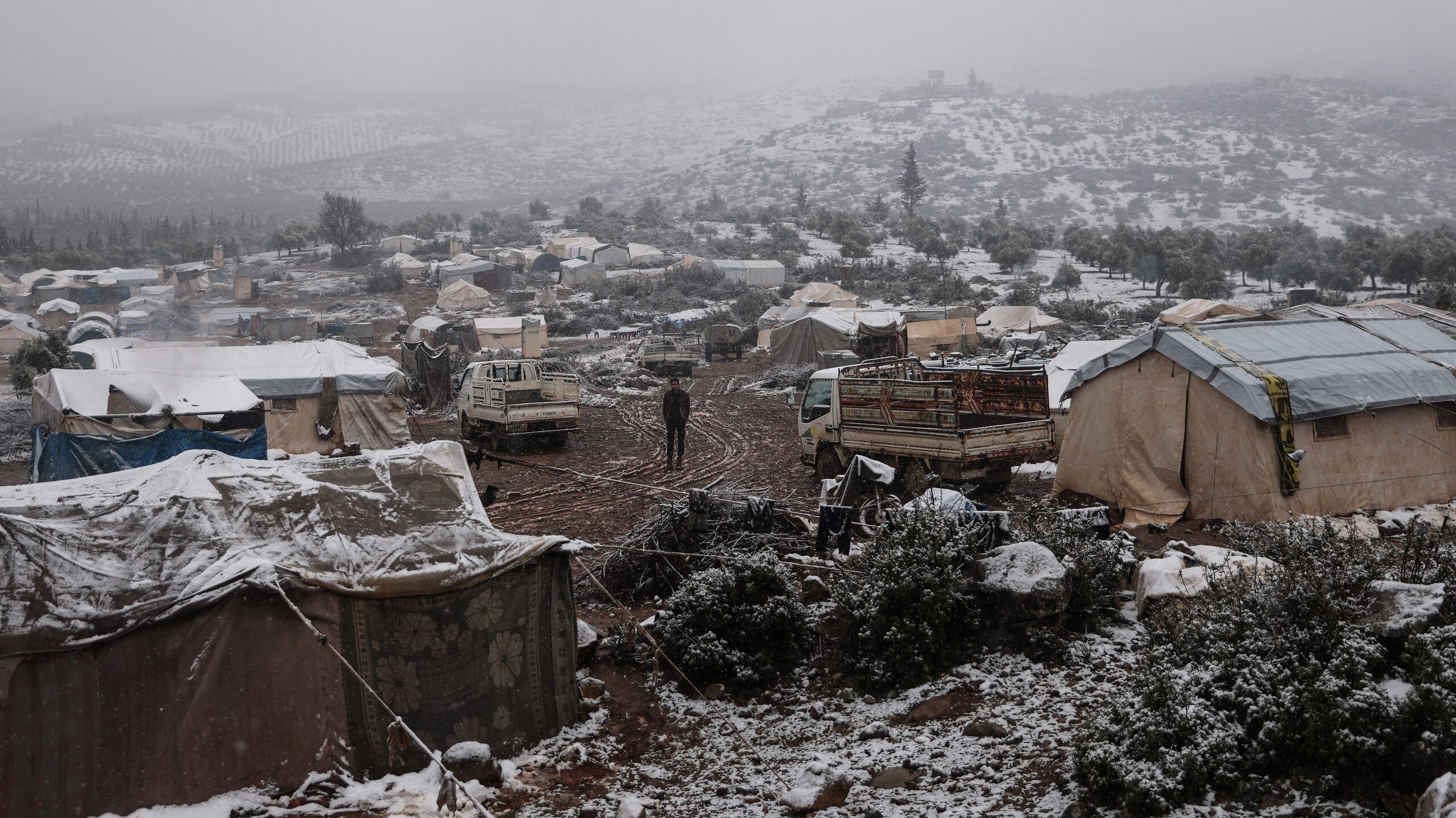Already Devastated by Earthquake, Turkey Faces Increased Threat of Terrorism
The disastrous earthquake that hit Turkey and Syria may hinder Turkey’s counterterrorism initiatives and provide an opportunity for Syrian extremists to enter the country
As Turkey deals with the consequences of the deadly earthquakes that struck the region on Monday, another potential hazard looms over the country: the security threat posed by the earthquake’s effect on the Turkish-Syrian border.
“The whole focus of Turkey and its allies is on how to respond to the devastating earthquake and its consequences,” Dr. Hamoon Khelghat-Doost, professor of political science at the University of Lincoln, UK, and Üsküdar University, Istanbul told The Media Line in an interview.
The death toll from the 7.8-magnitude earthquake and its aftershocks has already reached over 7,500, and the number is expected to continue to rise. Hundreds are trapped under the rubble and thousands of buildings were destroyed.
Any event, including natural disasters, that can divert the attention of a nation to a topic other than securing its borders is very much welcomed by extremist organizations such as ISIS
Turkey’s singular focus on responding to the earthquake could create favorable circumstances for terrorist organizations attempting to penetrate the border. “All the Turkish state’s capacities are mobilized to address the earthquake-related issues. This is not a moment to be missed by extremist organizations,” Khelghat-Doost said. “Any event, including natural disasters, that can divert the attention of a nation to a topic other than securing its borders is very much welcomed by extremist organizations such as ISIS.”
Khelghat-Doost noted that the Islamic State (IS) group similarly used the coronavirus pandemic as an opportunity to reorganize and amass power.
The border between Syria and Turkey extends more than 500 miles. The bilateral security agreement that once existed on the border was disrupted by the Arab Spring of the early 2010s, which also led to the ongoing civil war in Syria.
Turkey’s border policy has shifted over the years. In response to Syria’s escalating civil war, Turkey established an open border policy at the border with Syria to allow Syrian refugees to flee to Turkey. Soon after the start of the civil war, though, the area of Syria that borders Turkey was taken over by IS, creating a serious security threat to Turkey.
“The situation got complicated as the vacuum of power in Syria provided a conducive environment for the rise of extremist organizations such as ISIS. The group took control of a vast area along the border with Turkey,” Khelghat-Doost said. Ankara considers both IS and Syrian Kurdish forces immediate national security threats.
Several terrorist operations throughout Turkey are believed to be run by extremists who crossed from Syria into Turkey. In order to counter those threats, Turkey has conducted several military operations to secure the border, including Operation Euphrates Shield in 2016-2017, Operation Olive Branch in 2018, and Operation Peace Spring in 2019.
Uğur Şener, an international security analyst based in Turkey, told The Media Line that Turkey is continuing its efforts to maximize border security given the context of irregular migration.
About 540 of the 566 miles of Turkey’s border with Syria have been outfitted with a security barrier, Şener said. Most of the border now features an illumination system that includes a thermal sensor to detect movement near the border.
Turkey also established briquette houses on the Syrian side of the border to provide shelter in a more secure area for Syrians fleeing the humanitarian crisis. Briquette house settlements have been established at 248 different points along the border.
In response to the Quran burning at a protest in Sweden last month, IS leaders ordered the group’s affiliates to carry out an attack against the Swedish and Dutch consulates-general in Istanbul and against Christian and Jewish houses of worship. After the Turkish Intelligence Branch Directorate learned of the plot, it detained 15 IS members who were later sent to prison, Şener said.
According to Khelghat-Doost, many Western countries, including the US, the UK, the Netherlands, and Germany, shut down their consulates in Istanbul in response to the threat.
“Already existing threats combined with the current state of emergency in Turkey signal the possibility of further terrorist attacks in the near future,” he noted.
In addition to pulling attention away from Turkish officials who might otherwise be focused on preventing terrorism, the earthquake is also further destabilizing the situation in Syria. Khelghat-Doost estimated that thousands of Syrians had been killed and thousands more had lost their homes. The disaster may lead to a new round of Syrian refugees crossing the border into Turkey in search of shelter and support, he explained, adding that any large-scale population flow in the area carries its own security threats.
“It has been a common practice by the members of different terrorist organizations to use humanitarian tragedies to cross the border to Turkey. There is a fear that history will repeat itself in the coming days,” Khelghat-Doost said.
The earthquake has already begun to threaten the counterterrorism initiatives ongoing in Syria, as well. According to Khelghat-Doost, several IS inmates in a military prison in Rajo, Syria, about 3 miles from the border with Turkey, managed to escape in the aftermath of the earthquake.
“Thousands of extremists are living along the borders of Turkey and following the developments eagerly to find an avenue to enter Turkey or to conduct attacks along the border,” Khelghat-Doost said.


